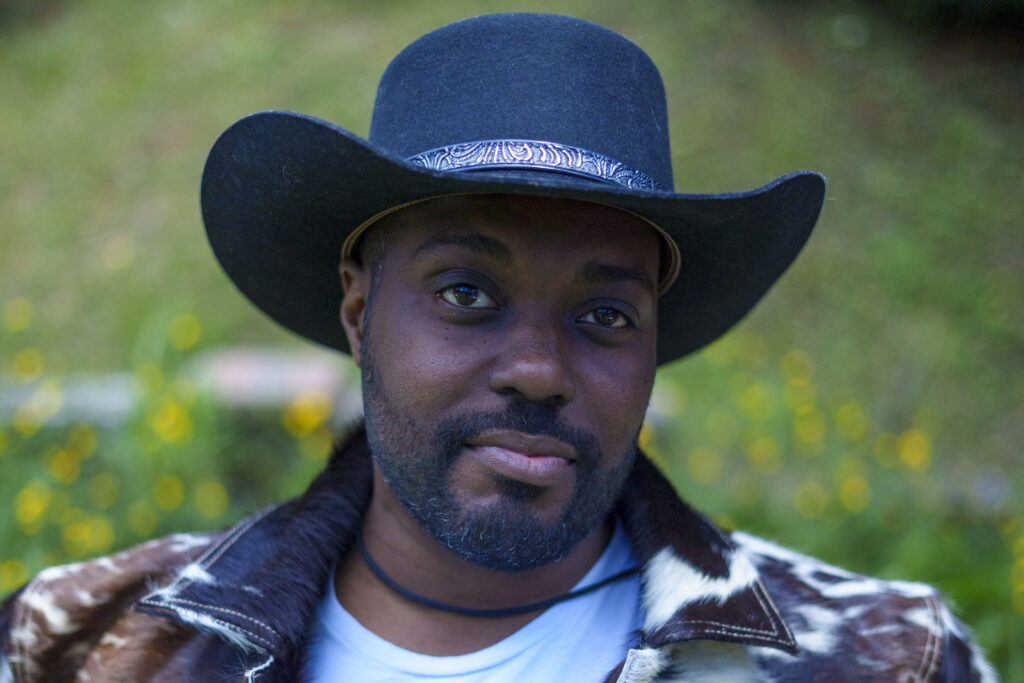
On a June afternoon, it seems like business as usual at the independent music company Thirty Tigers, as staffers file into its Nashville conference room and colleagues dial in remotely.
But this isn’t just any marketing meeting.
They’re joined by Holly G, the founder of the Black Opry platform — and its new record label — plus the first artist she signed, Jett Holden.
Everyone’s here to strategize about a one-of-a-kind album launch.
“We don’t usually get to actually have the artists in and talk to us one-on-one — or as one-on-one as this is,” says project manager Ale Delgado. “So it’s very special for us. I’m your point person between you guys and all the rest of us — just making sure you got what you need, we’ve got what we need, and everything that we’re doing is in service to your whole vision.”
It’s not just record sales and streaming numbers at stake for Holden and Black Opry Records; they’re out to use the tools of the music industry to help Holden get past its barriers on a one-of-a-kind, Black-owned country label. So it’s important that these business partners understand where he’s coming from.
“Growing up, I felt isolated,” Holden tells the Thirty Tigers team. “I came out to a Jehovah’s Witness family, and that didn’t go well. And for a long time, I just didn’t really feel like there was anyone out there like me. Writing was the only way I knew how to communicate. And so I just wrote songs, and I found out about myself through that process.”
He spent a decade trying to get those songs heard. A country record deal that he nearly signed years back evaporated once the label learned that he’s both Black and gay.
“So I went to the rock scene,” he recounts. “And then, I decided I wanted to be a poet, so I went into the folk scene. And then, I decided I wanted to do country again. And I moved to Tennessee, and things just weren’t going well. And then, the pandemic hit, and I was like, ‘I guess I’m done.’”
Right around the time that he was calling it quits in 2021, country fan Holly G was fed-up with feeling unrepresented in the genre she loved and determined to find performers of color.
“What I found,” she explains, “was there were a few lists of Black artists making country music, but there was no central space for them to exist. No blogs, no journals, nothing. So I started a blog that was supposed to just be a blog.”
She laughs, because the Black Opry didn’t remain a modest website for long.
Holden was the first artist she messaged. She got him a small grant to finish a song and, eventually, lots of gigs on package shows dubbed the Black Opry Revue.
Since the Black Lives Matter protests of 2020, there’s been more attention than ever on Black artists’ exclusion from country and roots music. Though the Black Opry website launched soon after with zero connections to the industry, its influence has grown to the point that it’s helping alter perceptions and further careers.
“This whole time working with the Black Opry has been building my confidence back in performing and being around the music industry,” Holden informs those in the meeting, “because I was very jaded and very skeptical of coming back into the scene.”
When Holly G arranged to start Black Opry Records through Thirty Tigers, she says, “The first thing I wanted to do was give him his record deal back.”
Holden’s still building his own following, so it was no small thing that he found a trusted ally and producer in established Nashville songwriter Will Hoge.
The familiar names who sing and play on Holden’s album “The Phoenix” will surely help draw attention to it. But no one here wants that to overshadow the fact that Holden’s finally front and center.
“I’m normally a very soft spoken person,” he says. “People talk over me, and I let them. That’s my chance to just, like, be loud and obnoxious and weird in all the best ways.”
“For us, when we’re talking about a narrative, that’s, like, our North Star,” publicist Michelle Steele chimes in. “It’s a publicist’s dream.”
“Another thing that I really love about this record and it being what we’re launching the whole label with,” Delgado tells Holden, “even though you touch on a lot of different kinds of heartbreak, it is just obviously so full of love and the support of this community.”
The team discusses what color Holden’s vinyl should be, the Black-owned record stores he should visit, and which of his songs to promote Americana, country and rock radio formats and streaming playlists in order to show that there are literary, hard-edged and down-home sides of his sound.
They give Holden some basic YouTube guidance, since he’s new at this.
“I know that you have two videos on the channel currently,” a digital strategist observes.
“Yeah, I just posted them randomly,” Holden admits. “I haven’t had any strategy for YouTube.”
“It’s all good,” he’s reassured. “That’s why I’m here to help out.”
Holden takes all the information in, and offers just one note on the press release, to the great amusement of the first crew of music business professionals he’s ever had behind him. They’ve no doubt heard more monumental complaints from artists who’ve come up against less prejudice.
“There was one spelling error I saw,” he says, eliciting laugher. “It’s when it’s talking about where I’m from. It says ‘Elizabethtown.’ It’s Elizabethton. There’s no ‘W.’”

